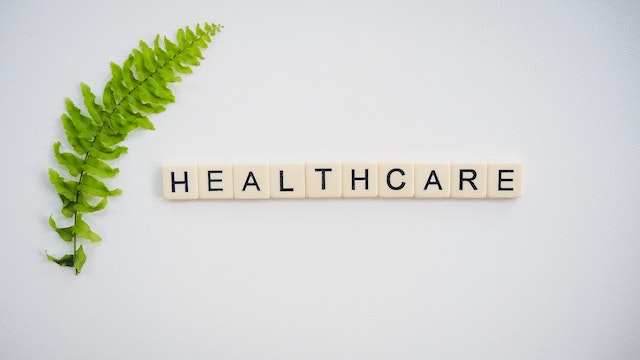Future of Healthcare: The Significance of Health Estimates

In an era marked by unprecedented advancements in healthcare, the concept of “Health Estimates” is emerging as a pivotal force shaping the way we understand and manage our well-being. Health Estimates encompass a wide array of tools, technologies, and methodologies that allow us to predict, assess, and improve our health with remarkable accuracy. From personalized medicine to population health management, these estimates are revolutionizing the healthcare landscape. By utilizing health estimates, individuals and the public can experience improved health outcomes. It’s important to note that there may also be challenges associated with this approach.
Understanding Health Estimates
Health Estimates predict future health. They assess current health. They optimize interventions with data-driven methods. These estimates leverage various data sources, including electronic health records, wearable devices, genetic information, and social determinants of health, to provide a comprehensive picture of an individual’s health.
One of the primary goals of Health Estimates is to move healthcare from a reactive model to a proactive one. Instead of waiting for symptoms to appear, these estimates empower individuals and healthcare providers to anticipate health issues. This shift towards proactive healthcare not only enhances the quality of life but also reduces the burden on it.
Personalized Medicine
Health Estimates play a pivotal role in the development and implementation of personalized medicine. By analyzing an individual’s genetic makeup, lifestyle factors, and historical health data, healthcare providers can create tailored treatment plans that are more effective and have fewer side effects. This approach is especially valuable in the treatment of complex conditions like cancer, where the genetic profile of the tumor can guide treatment decisions.
For example, in oncology, Health Estimates can predict how a specific patient will respond to a particular chemotherapy regimen based on their genetic markers. This helps oncologists select the best treatment, improving success rates and reducing unnecessary treatments.
Population Health Management
Health Estimates are not limited to personalized medicine; they also have profound implications for population health management. Healthcare organizations and policymakers can use these estimates to identify at-risk populations, allocate resources efficiently, and implement targeted interventions to improve the health of communities.
By analyzing demographic data, socio-economic factors, and health trends, public health agencies can develop strategies to reduce the prevalence of chronic diseases, improve vaccination rates, and address health disparities. For instance, Health Estimates can help identify neighborhoods with a high risk of diabetes and design outreach programs to promote healthy lifestyles and regular screenings.
Remote Monitoring and Telemedicine
The rise of telemedicine and remote monitoring has been greatly facilitated by Health Estimates. Wearable devices and mobile applications can collect real-time health data, such as heart rate, blood pressure, and glucose levels, and transmit it to healthcare providers. This allows for continuous monitoring of patients with chronic conditions and early detection of any deviations from normal health.
Health Estimates enable physicians to make timely adjustments to treatment plans and provide remote consultations, reducing the need for in-person visits and improving the overall patient experience. Additionally, remote monitoring can help prevent hospital readmissions by identifying potential issues before they escalate.
Ethical and Privacy Concerns
While Health Estimates offer tremendous potential benefits, they also raise ethical and privacy concerns. The collection and analysis of vast amounts of health data can lead to questions about data security, consent, and the potential for discrimination based on health predictions.
To address these concerns, it is crucial to establish robust data protection regulations. Ensure that individuals have control over their health data. Transparency in data collection and usage, informed consent, and strong encryption are essential elements of a responsible Health Estimates ecosystem.
Ethical and privacy concerns related to Health Estimates:
- Data Security: Health Estimates rely heavily on the collection and storage of sensitive health information. Ensuring the security of this data is paramount. Unauthorized access, data breaches, or cyberattacks can lead to the exposure of personal health records. That leads to identity theft or other malicious activities. Robust cybersecurity measures are essential to safeguard this sensitive information.
- Informed Consent: Obtaining informed consent from individuals is a fundamental ethical principle. When collecting health data for the purpose of creating estimates or conducting research, individuals must be fully informed about how their data will be used and have the option to provide or withhold consent. Clear and transparent communication regarding data usage is crucial to respecting individual autonomy.
- Potential for Discrimination: Health Estimates, especially predictive models, can inadvertently perpetuate or exacerbate existing health disparities. It’s crucial to use historical data to identify populations at higher risk. But discrimination in areas like insurance, employment, or healthcare access is a valid concern. That’s why it’s essential to prioritize fairness and equity when developing and implementing these models.
The Future of Health Estimates
As technology continues to advance, the field of HealthEstimates is poised for even greater innovation. With the incorporation of artificial intelligence, machine learning, and big data analytics, the future of healthcare looks bright. It’s important to also consider factors such as genomic data, microbiome analysis, and social determinants of health. Just to gain a more comprehensive understanding of individual and population health.
Conclusion
Health Estimates represent a transformative force in healthcare, ushering in an era of personalized medicine, proactive healthcare, and more effective population health management. By utilizing estimates, healthcare providers can better manage patients’ health and deliver more precise care.





